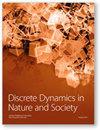异质性不确定性对绿色债券市场的不对称影响
IF 1.2
4区 数学
Q3 MATHEMATICS, INTERDISCIPLINARY APPLICATIONS
引用次数: 0
摘要
投资绿色债券已被公认为是一种不仅能促进环境绩效,还能提供诱人投资回报的策略。然而,地缘政治风险(GPR)、气候政策不确定性(CPU)和全球经济政策不确定性(GEPU)等宏观经济因素在影响绿色债券收益方面发挥着重要作用。本文以美国绿色债券的收益率作为绿色债券收益率的替代指标,认为这些异质性的不确定性指标可能会对绿色债券(GB)的收益率产生不对称的影响。通过采用 2016 年 1 月至 2022 年 8 月的月度数据,我们运用非线性自回归分布滞后模型(NARDL)检验了这些异质性不确定性指标对绿色债券收益的非对称影响。非线性自回归分布滞后模型的研究结果表明,GPR、GEPU 和 CPU 对绿色债券收益率的短期影响不对称。从长期来看,GPR 和 CPU 对绿色债券收益的影响是不对称的。但从长期来看,中央政策组对绿色债券收益的影响是对称的。具体来说,在短期内,我们发现中央处理器的正向冲击会导致绿色债券收益率下降。类似幅度的中央政策组合负向冲击会导致绿色债券收益率上升。此外,对 GPR 的正向冲击会增加绿色债券的收益,而对 GPR 的类似负向冲击则会降低 GB 的收益。此外,只有 GEPU 的负向冲击才会在短期内对 GB 的回报率产生影响。具体来说,GEPU 的负向冲击会降低 GB 的回报率。从长期来看,绿色增长收益率的负向冲击以及绿色就业单位的正向和负向冲击都会对绿色增长收益率产生积极影响,而绿色增长收益率的正向冲击则会对绿色增长收益率产生消极影响。本文章由计算机程序翻译,如有差异,请以英文原文为准。
Asymmetric Impact of Heterogenous Uncertainties on the Green Bond Market
Investing in green bonds has been recognized as a strategy that not only promotes environmental performance but also offers attractive investment returns. However, macroeconomic factors, such as geopolitical risk (GPR), climate policy uncertainty (CPU), and global economic policy uncertainty (GEPU), play a substantial role in shaping green bond returns. Using the returns of US green bonds as a proxy for the returns of green bonds, we argue in this paper that these heterogenous uncertainty measures might have asymmetric impacts on the returns of green bonds (GB). By employing monthly data from January 2016 to August 2022, we apply the nonlinear autoregressive distributed lags model (NARDL) to examine the asymmetric impact of these heterogenous uncertainty measures on the returns of GB. The NARDL findings reveal evidence of short-run asymmetric impacts of GPR, GEPU, and CPU on the returns of green bonds. In the long run, there is an asymmetric impact of GPR and CPU on the returns of GB. However, there is a symmetric impact of CPU on the returns of GB in the long run. Specifically, in the short run, we found that a positive CPU shock causes a decline in the returns of green bonds. A similar magnitude of negative CPU shock causes an increase in the returns of green bonds. Moreover, a positive shock to GPR increases the return of green bonds, while a comparable negative shock to GPR reduces the return of GB. Furthermore, only negative shocks to GEPU have an impact on GB returns in the short run. Specifically, a negative GEPU shock reduces GB returns. In the long term, the returns of GB are positively impacted by negative shocks in GPR and both positive and negative shocks in GEPU, whereas positive shocks in GPR affect the returns of GB negatively.
求助全文
通过发布文献求助,成功后即可免费获取论文全文。
去求助
来源期刊

Discrete Dynamics in Nature and Society
综合性期刊-数学跨学科应用
CiteScore
3.00
自引率
0.00%
发文量
598
审稿时长
3 months
期刊介绍:
The main objective of Discrete Dynamics in Nature and Society is to foster links between basic and applied research relating to discrete dynamics of complex systems encountered in the natural and social sciences. The journal intends to stimulate publications directed to the analyses of computer generated solutions and chaotic in particular, correctness of numerical procedures, chaos synchronization and control, discrete optimization methods among other related topics. The journal provides a channel of communication between scientists and practitioners working in the field of complex systems analysis and will stimulate the development and use of discrete dynamical approach.
 求助内容:
求助内容: 应助结果提醒方式:
应助结果提醒方式:


